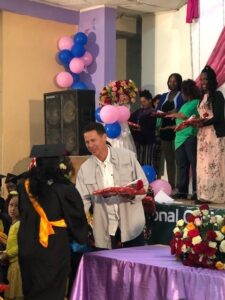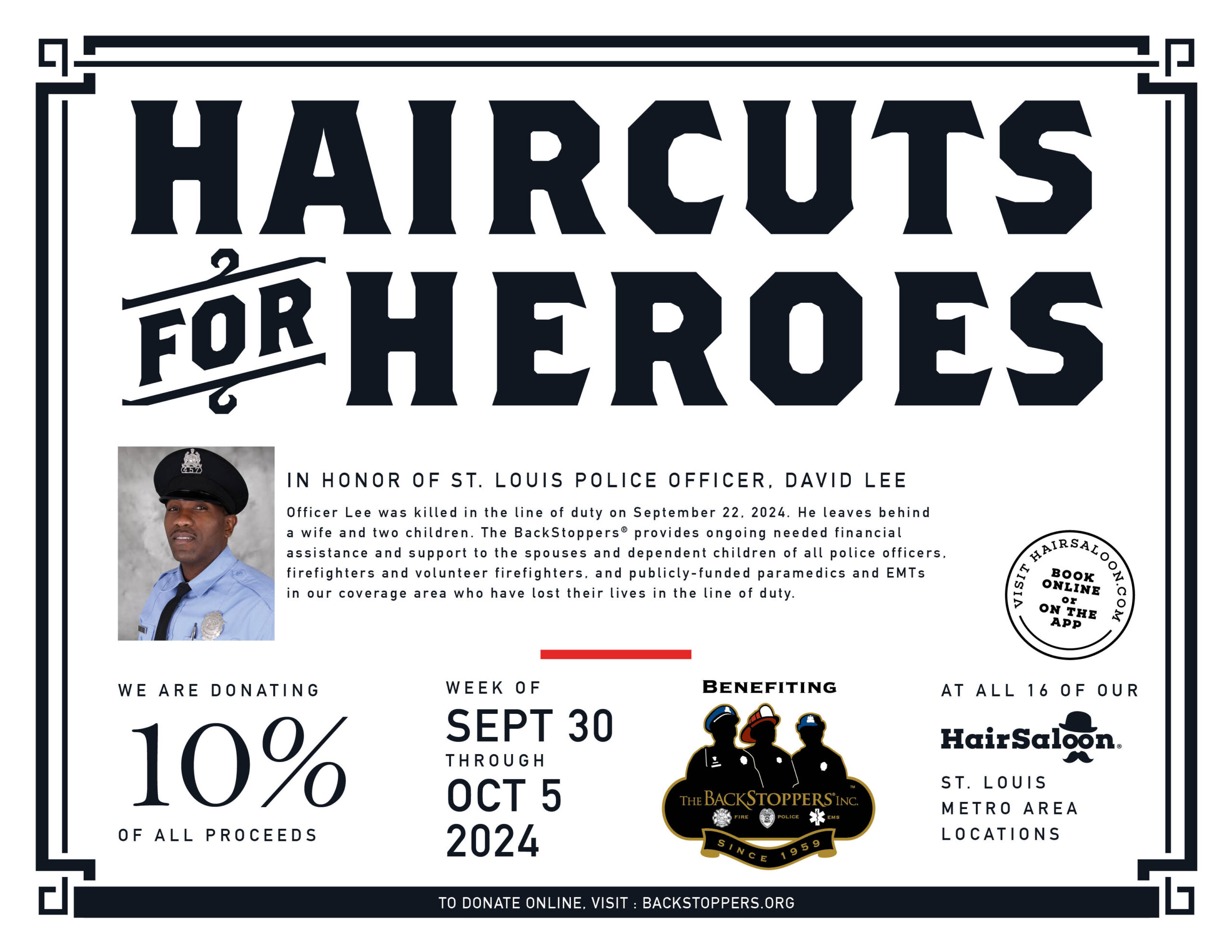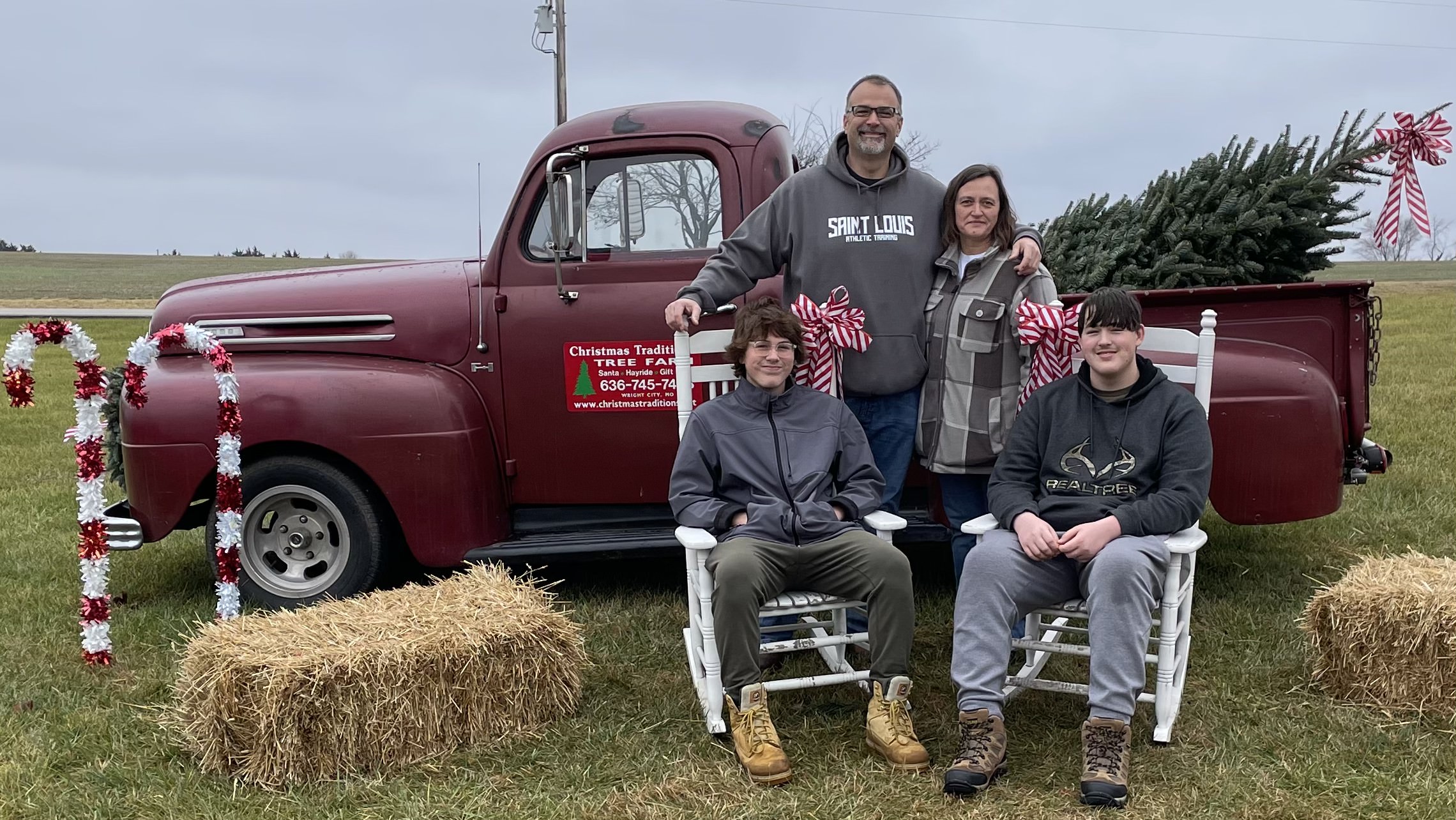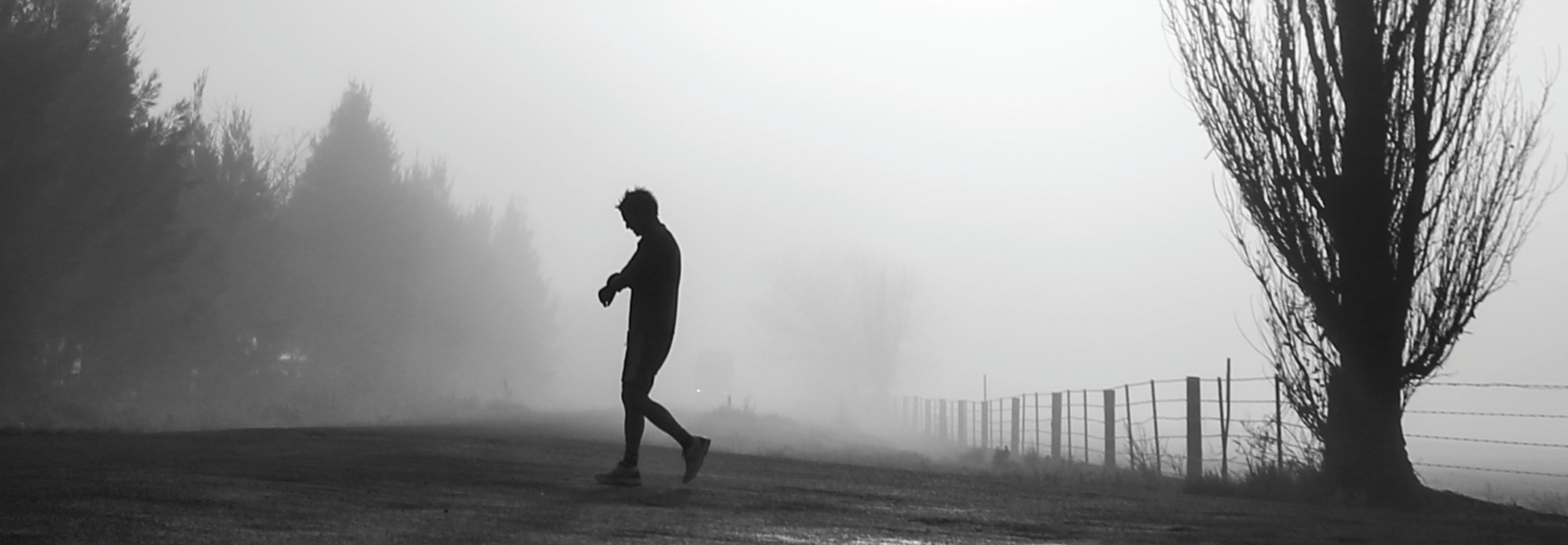By: Mike Lemp, Co-Owner
Hair Saloon – Big Bend & Dougherty Ferry
 It’s an uncomfortable fact to talk about, but it’s a fact just the same: the issue of human trafficking is a growing problem internationally and right here in the United States. According to the U.S. Department of State, there are an estimated 27.6 million active victims¹ of human trafficking today worldwide. In the U.S. alone, 2,027 suspects² were referred to U.S. attorneys for human trafficking offenses in fiscal year 2021. That number is up nearly 50% from just ten years earlier.
It’s an uncomfortable fact to talk about, but it’s a fact just the same: the issue of human trafficking is a growing problem internationally and right here in the United States. According to the U.S. Department of State, there are an estimated 27.6 million active victims¹ of human trafficking today worldwide. In the U.S. alone, 2,027 suspects² were referred to U.S. attorneys for human trafficking offenses in fiscal year 2021. That number is up nearly 50% from just ten years earlier.
I’m Mike Lemp, Hair Saloon franchisee and co-owner of Hair Saloon – Big Bend & Dougherty Ferry. I know the challenge human trafficking poses to our global society, because I’ve seen it firsthand through my work with the St. Louis-based non-profit organization Crisis Aid International.
In the late 90s and early 2000s, while working for Anheuser-Busch, I got to know Pat Bradley. Pat was part-owner of a partner agency we worked with. As I learned more about him, I noticed the vacations Pat took weren’t the same as the vacations I, and most other people, took away from work. Instead of using PTO to get away and relax at the lake or visit a remote beach somewhere, Pat was using his time off to participate in humanitarian mission trips to some of the most impoverished places in the world. As our working relationship developed into a friendship, Pat became a kind of mentor to me.
Following emergency response trips to Afghanistan, Sudan, and Pakistan, Pat was moved to start Crisis Aid International in 2002. Today, the non-profit organization has earned a well-deserved reputation as a leader on the forefront of serving children and families in crisis, both here in the United States and across the globe. Because of my relationship with Pat and his passion for having an impact on the world, I felt compelled to get involved. It started out with volunteering at a few events here and there and seeing the great need that existed and the way the organization was responding to it. As my commitment to the organization’s cause grew, I ultimately accepted the invitation to become a member of the executive board and leadership team for the organization.
At Crisis Aid International, we serve others through five core initiatives: Safety, Health, Food, Community Transformation, and Emergency Response, operating under the mantra that ultimately drove my friend Pat to start the organization: we refuse to do nothing.
One way we live that motto is by taking the fight to the front lines of the global war against human sex trafficking here in the United States and in East Africa. While both locations have a growing problem with human trafficking, geopolitical and economic differences between the two regions demands that we take a different approach to the issue in each region.
A Domestic Focus on Prevention
In the United States, access to technology has made children more vulnerable to human trafficking efforts. It’s easier than ever before for a malicious adult to pose as a friend in an online environment, waiting for the right opportunity to prey upon an unsuspecting child on the other end of the manufactured relationship. As a father myself, I know how difficult it is to balance raising children who are wary of the clear and present danger lurking in the shadows of our world, without making them too scared to live their lives and make connections. But the risk is real, so we focus our domestic efforts on education and prevention through our Child Anti-Exploitation Program (CAP).
CAP is a ground-breaking initiative whereby we partner with law enforcement and other first responders in participating communities to address gaps in prevention and early intervention. Our CAP team members are embedded within local law enforcement teams, providing immediate ongoing resources to police officers, children at risk, and their families. Today, our organization’s CAP program operates in both St. Louis and in Grand Rapids, MI, but our vision is to expand the program nationwide.
Providing a Path to a New Life in East Africa
Unfortunately, in East Africa the need is different. An alarming number of girls who see very few options for their future are lured into a life of prostitution by opportunistic criminals taking advantage of their lack of hope and opportunity. I’ve met more young women than I can count who feel trapped and forced to work in red light districts for their very survival. In this region, Crisis Aid International runs Mercy Chapel, a former brothel we’ve converted into a chapel and vocational school.
 Our team members in the region go into the red light districts daily on a mission to meet and talk with the girls working there and offer them a path to a better future. Our efforts in East Africa are focused on getting the girls into classes at Mercy Chapel, where they learn valuable and employable skills like haircare, basket weaving, and leather work, as well as critical life skills. We also operate several girls’ homes in the region, providing a safe and caring living space and home environment. Some of the girls choose to live in one of our homes while they attend Mercy Chapel. Others aren’t yet ready to make that transition and continue to work in the red light district at night while they take classes during the day. We make a point in this region to meet the girls where they are and offer whatever step in the right direction they’re able to take given their unique situation.
Our team members in the region go into the red light districts daily on a mission to meet and talk with the girls working there and offer them a path to a better future. Our efforts in East Africa are focused on getting the girls into classes at Mercy Chapel, where they learn valuable and employable skills like haircare, basket weaving, and leather work, as well as critical life skills. We also operate several girls’ homes in the region, providing a safe and caring living space and home environment. Some of the girls choose to live in one of our homes while they attend Mercy Chapel. Others aren’t yet ready to make that transition and continue to work in the red light district at night while they take classes during the day. We make a point in this region to meet the girls where they are and offer whatever step in the right direction they’re able to take given their unique situation.
As part of the girls’ vocational training, they complete an internship in the last month of their education. When they finish their coursework, we host a big graduation ceremony and party to celebrate this milestone for the students. It’s an amazing event I am always inspired to participate in. Many of these girls go on to work in one of our girls’ homes or hospitals. Others find employment elsewhere in the community, putting their new skills to use. But all of them leave with dignity and a stronger sense of self-worth. Since its founding, Mercy Chapel has graduated 1,939 girls and we’ve been able to give them all a brighter future to look forward to.
What if We All Refused to Do Nothing?
 I get it. When you hear stories about the growing problem with human trafficking and other humanitarian needs in our global society, it’s easy to become discouraged by a problem that seems too large and difficult to overcome. But in a world where an alarming number of people are living without hope for a better life unless someone steps in to help, the need is too great to simply ignore it. That someone can be you.
I get it. When you hear stories about the growing problem with human trafficking and other humanitarian needs in our global society, it’s easy to become discouraged by a problem that seems too large and difficult to overcome. But in a world where an alarming number of people are living without hope for a better life unless someone steps in to help, the need is too great to simply ignore it. That someone can be you.
I want to take this opportunity today to invite you to join us in refusing to do nothing. I believe that you and I are called to be thankful for the blessings we have, and to be a blessing for others in whatever way our time, gifts, talents, and resources allow. Whether it’s working with us at Crisis Aid International, or with some other organization serving a need in the world, there’s always something you can do. The challenge is choosing to answer that call.
To learn more about Crisis Aid International and find out how you can join us in our goal to demonstrate God’s love and care for people, I encourage you to visit www.crisisaid.org.
[1] https://www.state.gov/humantrafficking-about-human-trafficking/
[2] https://bjs.ojp.gov/library/publications/human-trafficking-data-collection-activities-2023


